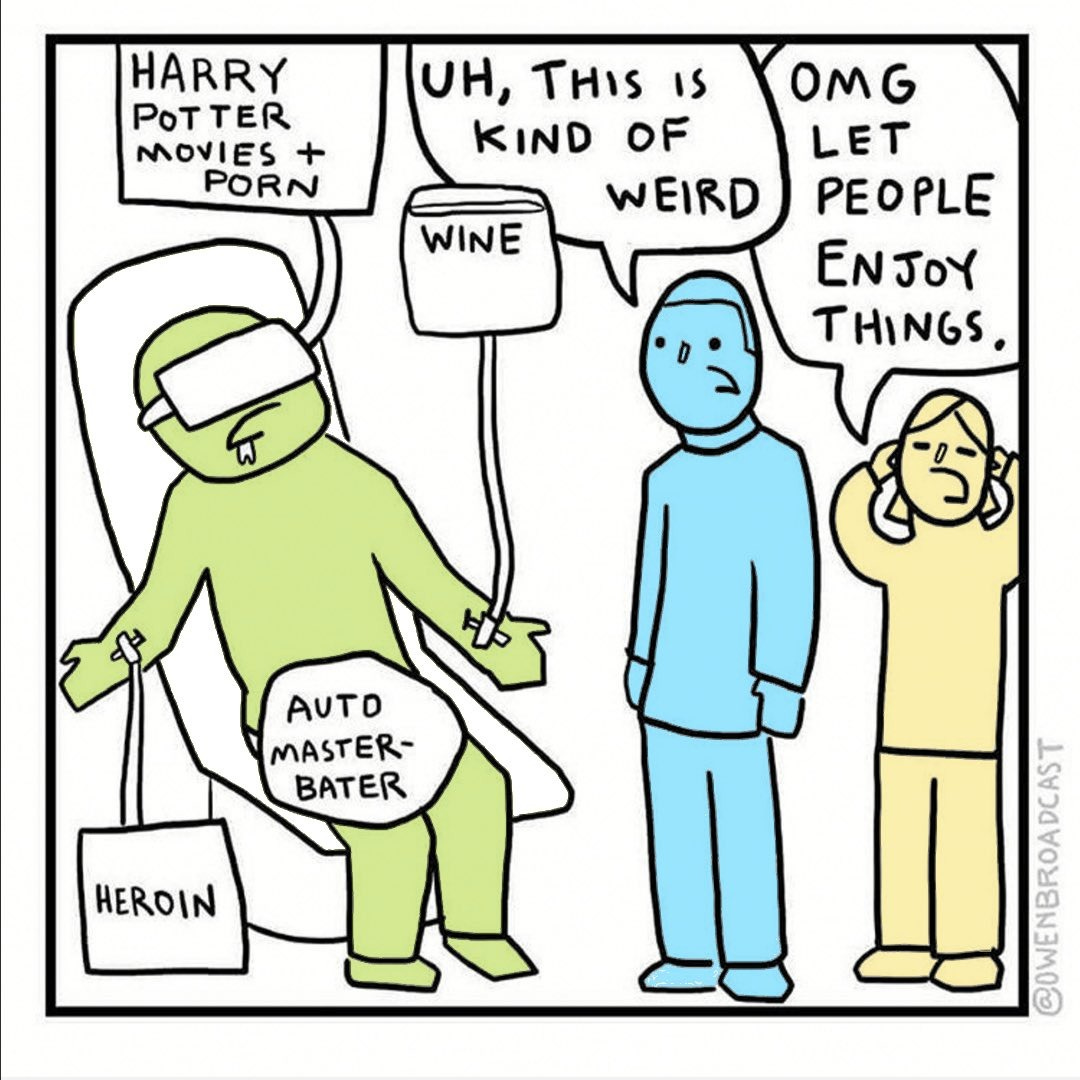We Are All Disney Adults Now
Real reality is too distressing, so we retreat into something emptier.
One weekend, after a house party in the middle of which no fewer than four people broke down crying (I was one of the four), my friends and I agreed life currently feels like that reaction video in which a dinner party is interrupted by an alarm and everyone runs and grabs random shit and eventually a gun—total chaos emanating from no identifiable source.
These past few months have been bad and scary, yes, but, also, unexpectedly bizarre. It’s not just that fascism marches on, it’s that it’s marching on in ways that seem designed to make everyone feel insane.
At first, I thought of this as a kind of inevitable randomness—each day of American history becoming more stupid than the last—owing to the fact that everyone in power is stupid. But now I’ve come to believe there’s a direct relationship between these things. The bizarreness, the badness, they’re the same thing. They necessitate each other.
A world barreling toward authoritarianism, a world in which there are fewer and fewer avenues through which to experience any kind of sustainable happiness or human connection, must force its smile wider and wider in order to hide all the growing pain underneath. And so that is what I have been experiencing: a kind of ecstatic and manic rush that helps ease the pain of the violence undergirding my life.
The Joker is perhaps a trite example to pull here, but, yes, that is what is happening: an exaggerated smile to conceal an as-yet-unsatiated violence. No wonder so many men gravitated towards the character in the last decade, no wonder he became a kind of hero to them. To the rest of us, The Joker was social commentary. But to them he was an emotional reality. As the vanguard of fascism, these right-wing men were the first to realize the duality of the process we are now all living through: an ever-expanding violence, concealed by an ever-widening smile.
I think of Hunter S. Thompson, high on ether and mescaline, entering Las Vegas’s Circus Circus casino, right around the time Nixon came to power, and seeing the vulgarities—the booze- and gambling-crazed Americans sloshing around a fenced-in area like pigs, belly-laughing as if they were experiencing joy and freedom. Upon seeing this, Thompson remarked the casino was what “the whole hep world would be doing on Saturday night if the Nazis had won the war.” Nixon, Thompson said, would be a perfect mayor for Las Vegas.
That’s what Thompson understood: it is not one or the other, but both: violence begets empty glee, and empty glee ameliorates the violence so that we can produce more of it.
All of which is to say it should not have been surprising to me that Taylor Swift’s new album was her best-selling yet, despite nearly every review and reaction I’d seen determining it was somewhere between underwhelming and deeply and scarily empty and craven as an artistic project, even by her standards. The album and its sales were yet another sign of this growing and interlinked chasm: the worse the world gets, the more empty the culture gets, and vis versa. No, I do not think Taylor Swift is a Nazi, but her album is what the whole hep world might sound like if the Nazis had won the war—asinine, removed from reality and thus incapable of helping people navigate theirs, depraved not in its message (intellectual, sonic) but in its lack of one; each and every variant of her record sold a little twist of the wrench: open up wider, let me see more teeth.
There is of course a lot of bad music out there. That is not singular to Swift. But what I am saying is that the emptiness of Swift’s new album and the fact that it is her highest-selling ever are linked—that in a world that feels increasingly inhospitable to the human psyche, people gravitate specifically toward the kind of saccharine, empty pleasures of records like these; that we crave things that make the world feel more child-like.



